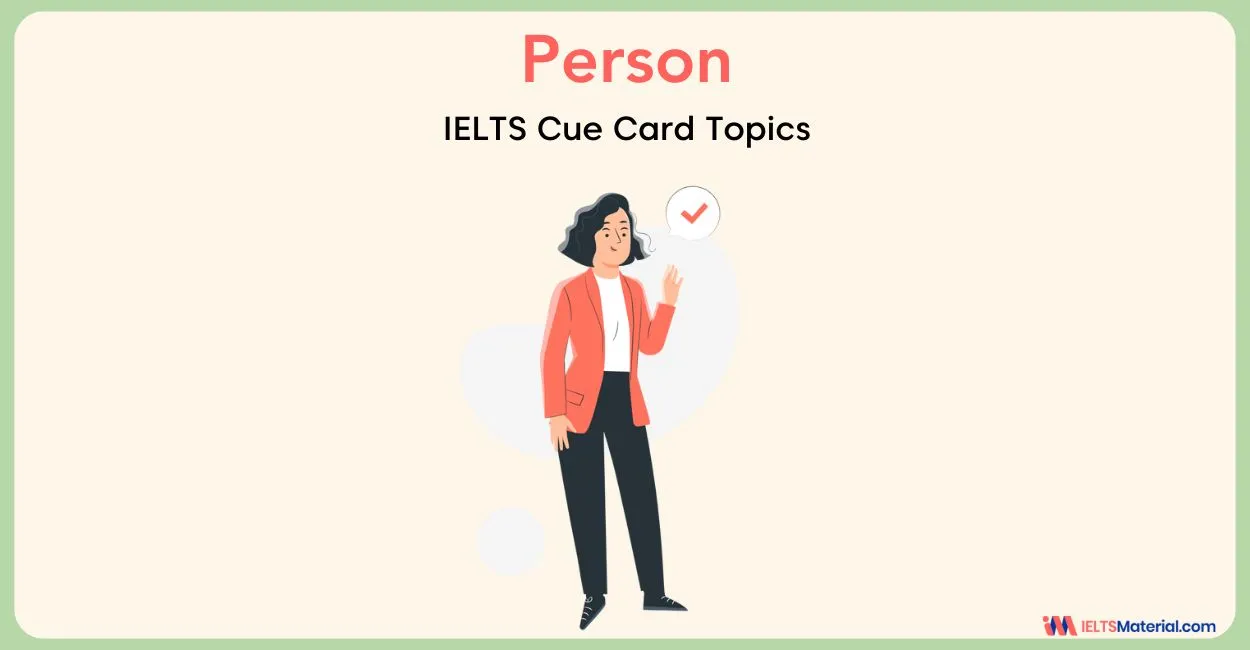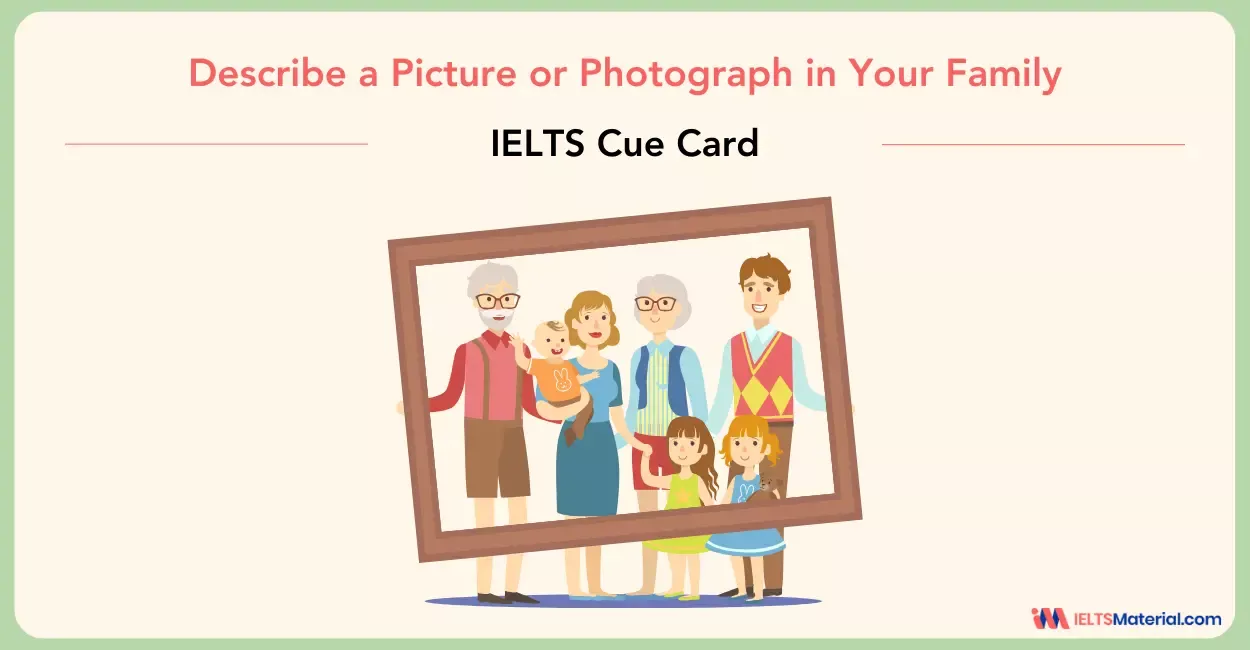Describe an Activity you Like Doing IELTS Cue Card
Struggling with IELTS speaking? Check out these 3 top sample answers for the "Describe an Activity you Like Doing" cue card, along with expert Part 3 responses, to level up your preparation and ace the exam!
Table of Contents
- Describe an Activity you Like Doing
- Describe an Activity you Like Doing Sample Answer 1
- Describe an Activity you Like Doing Sample Answer 2
- Describe an Activity you Like Doing Sample Answer 3
- Describe an Activity you Like Doing IELTS Cue Card Vocabulary
- Describe an Activity you Like Doing – IELTS Part 3 Follow-Up Questions
- Describe an Activity you Like Doing IELTS Speaking Part 3 Vocabulary

Guide to Achieving Band 8+ on IELTS Speaking Cue Cards
This article is about IELTS Speaking Part 2 topic: ‘Describe an Activity you Like Doing’ or ‘Describe an interesting activity that you enjoy doing part 2’.
In this post, you will not only learn how to answer similar IELTS Speaking Part 2 topics through the three sample answers but you will also find answers to IELTS Speaking Part 3 questions. supported by relevant IELTS Vocabulary. Before you start, go through the tips in the guide below to prepare for Part 2 of the IELTS Speaking test and improve your skills and fluency!
Therefore, without wasting much of your precious preparation time, let us look at the three sample answers on the topic about an interesting activity that you enjoy doing along with some related vocabulary that you can use for such IELTS Cue Card topics.
Describe an Activity you Like Doing
- What kind of activity do you do?
- Where do you do it?
- When do you do it?
- Who do you do it with?
- Explain why you like to do this activity.
Describe an Activity you Like Doing Sample Answer 1
One activity I absolutely enjoy is yoga. It’s a form of exercise that not only keeps me physically fit but also helps me relax and clear my mind. I’ve been practicing yoga for about three years now, and it has become an essential part of my daily routine.
I usually do yoga at home in my living room, which I’ve turned into a small, peaceful workout space. I’ve placed a yoga mat, some candles, and a speaker to play calming music, which creates a serene environment. Occasionally, I also attend yoga classes at a nearby studio, especially when I want to learn new techniques or challenge myself with advanced poses.
I prefer to do yoga early in the morning, right after I wake up. It helps me start my day with a positive mindset and energizes me for the tasks ahead. On weekends, I sometimes practice in the evening to unwind after a long day.
Most of the time, I do yoga alone because it allows me to focus on my breathing and movements without any distractions. However, I occasionally invite my best friend to join me, and we practice together. It’s a great way to bond and motivate each other.
The reason I love yoga so much is that it’s a holistic activity that benefits both my body and mind. It improves my flexibility, strength, and posture while also reducing stress and anxiety. The meditative aspect of yoga helps me stay calm and focused, even during busy or challenging times. Additionally, it’s a low-impact exercise, so it’s suitable for people of all ages and fitness levels. Overall, yoga has become my go-to activity for maintaining a healthy and balanced lifestyle.
Shy to Speak? Book a FREE Demo to practice with an IELTS expert now!
Describe an Activity you Like Doing Sample Answer 2
One activity I really enjoy is morning jogging. It helps me stay fit and refreshes my mind.
I usually jog in a beautiful park near my house, which has lush greenery and well-maintained tracks. The fresh air and peaceful surroundings make it a perfect place to exercise.
I go jogging almost every morning, especially on weekdays before starting my day. It has become a part of my routine, and I feel more energetic afterward.
Most of the time, I jog alone, but sometimes my friends or neighbors join me. We motivate each other and even challenge ourselves to run longer distances.
I love this activity because it keeps me physically active and mentally relaxed. It also gives me time to reflect on my thoughts, listen to music, and enjoy nature. Overall, jogging is an essential part of my lifestyle, and I can’t imagine my mornings without it.
Check out the strategy to improve your IELTS Speaking Part 2!
Describe an Activity you Like Doing Sample Answer 3
One activity I really enjoy is painting, as it allows me to express my creativity and relax at the same time. I usually paint in my study room or at an art studio in my city. The studio has a calm atmosphere and provides all the necessary materials, making it an ideal place to focus.
I dedicate time to painting on weekends or whenever I feel inspired. Sometimes, I spend hours working on a single piece, completely losing track of time. Most of the time, I paint alone, but I occasionally attend art workshops where I can interact with other artists and learn new techniques.
I love painting because it helps me unwind and brings me a sense of accomplishment. It allows me to capture my thoughts and emotions in a unique way. Every time I complete a painting, I feel proud and motivated to create more.
Enroll in IELTS Online Classes to Boost your Speaking Skills!
Describe an Activity you Like Doing IELTS Cue Card Vocabulary
Check out some IELTS Vocabulary to use while answering the cue card, 'Describe a Free Time Activity That you Like Doing' and make sure to impress your IELTS examiner.
- Refresh – To make someone feel more energetic or awake.
- A morning walk refreshes my mind and body.
- Surroundings – The environment or area around a person or place.
- The park's peaceful surroundings make it perfect for jogging.
- Routine – A regular way of doing things.
- Brushing my teeth before bed is part of my daily routine.
- Occasionally – Sometimes, but not very often.
- I occasionally visit the gym when I have extra time.
- Challenge – To test your ability or strength.
- I like to challenge myself with new yoga poses.
- Unwind – To relax after being busy or stressed.
- Reading a book helps me unwind after a long day.
- Distractions – Things that take your attention away from what you are doing.
- I prefer studying in a quiet place without distractions.
- Flexibility – The ability to move your body easily.
- Yoga improves flexibility and helps prevent injuries.
- Posture – The way someone holds their body while sitting or standing.
- Good posture is important for avoiding back pain.
- Balanced – A mix of different things in the right way.
A balanced diet is essential for staying healthy.
Join our free webinars on IELTS Speaking to get your hands on preparation tips!
Practice Speaking Part 2 Topics:
- Describe Something you Want to do if You get Free Time- IELTS Cue Card
- Describe a Leisure Activity (A Game, Hobby, or Sport) That is Popular in your Country
- Describe an interesting activity that you enjoy doing in your spare time
- Describe a leisure activity you do with your family
Describe an Activity you Like Doing – IELTS Part 3 Follow-Up Questions
In IELTS Speaking Part 3, you will be asked some questions related to the topic of the cue card you have been given in Part 2. So, some follow-up questions related to the topic, 'Describe a Free Time Activity That you Like Doing' are given below with expert-curated sample answers.
-
What do people in your country like to do when free?
Sample Answer 1
In my opinion, free time activity depends on the individuals’ ages. For example, children in India enjoy playing with their friends, while young adults are either learning new things or spending time with their families. Similarly, elders are more interested in staying at home with their family or interacting with people of their own age group.
Sample Answer 2
As far as I know, people in my country mostly spend their time participating in activities they like to do to rejuvenate themselves after a busy schedule, like traveling, shopping, gossiping with friends and family, listening to music, etc.
-
Do you think parents should make plans for their children?
Sample Answer 1
From my perspective, parents should plan for their children up to an age when they need guidance, especially in terms of their general wellbeing, education, and health. It is because parents always ensure that their children are successful by giving careful thought to their needs, hobbies, and long-term objectives.
Sample Answer 2
I think parents shouldn’t be too rigid or controlling while making plans for their kids. They should definitely guide their children to make plans as they want the best for their wards. However, they should also keep in mind that rigid planning might limit children’s liberty and prevent them from exploring their own interests and talents.
-
Are people able to manage their free time?
Sample Answer 1
I have noticed that most people nowadays don’t have a routine because they lead busy lives without any sort of purpose in life. As a result, they find it difficult to manage their leisure time and are not flawless at managing their time because of this.
Sample Answer 2
I believe that most people can handle their free time. Of course, they have very little leisure time because of the competitive times. So, in whatever free time they get, some people choose to unwind, while others prefer to finish home tasks like grocery shopping.
-
What is the difference between the things people did in their free time in the past and the things they do nowadays?
Sample Answer
In the past, people had few options for what to do with their free time. Therefore, they would mostly spend it with their family or engage in constructive conversations with their neighbors. However, a lot has changed since then. Individuals today have a wide range of options for how to spend their leisure time. They can travel to various tourist attractions, can watch films on television or mobile devices or upgrade their existing skills for success.
-
What do you like to do in your free time?
Sample Answer 1
I like to lose myself in the world of books when I have free time. Reading a compelling narrative or diving into a thought-provoking non-fiction book may be very satisfying. It opens my mind and takes me to other places, whether I’m reading on the couch with a book or relaxing with a cup of coffee and my ebook.
Sample Answer 2
Cooking experiments is one of my favourite things to do in my spare time. I enjoy creating new dishes with different recipes, adjusting ingredients, and tasting the delectable dishes I can make. It brings my creativity to life and sharing the results of my labor with loved ones, and getting together around the table is also immensely fulfilling.
-
Is it important to have a break during work or study?
Sample Answer
Yes, in my opinion, it is crucial to take breaks when working at the office or studying. It is because continuous work or study can be detrimental to our mental health. As a result, it is necessary for us to take a five to ten-minute break, unwind, and then resume our work or study.
-
Do people have enough time for leisure activities nowadays?
Sample Answer
According to me, lack of time for free-time activities is a problem of the current times. People don’t have much time for leisure activities because of intense competition and long workdays. Consequently, they become prone to an unhealthy lifestyle, which is attributed to less time spent exercising or relaxing.
-
Can most people achieve work-life balance in your country?
Sample Answer 1
Yes, many people in my nation are able to achieve a work-life balance. As the value of striking a healthy balance between professional and private life grows, companies are introducing flexible work schedules and encouraging mental health and well-being among their staff members. Even if there may still be difficulties, individuals in my nation are learning how to balance their work and personal responsibilities, which eventually increases happiness, productivity, and job satisfaction.
Sample Answer 2
Unfortunately, many people in my nation still find it extremely difficult to achieve work-life balance. The pressures of the contemporary workplace frequently make it challenging for people to prioritise their personal lives over their employment. Furthermore, many people may find it more difficult to attain work-life balance as a result of variables like unstable economic conditions, job insecurity, and limited access to supporting work policies. Even with the efforts being made to solve these problems, a large segment of the people in my nation still struggle to achieve true work-life balance.
Our 4.5+ Rated Speaking Ebook is Back in Stock! Grab it Now!
Describe an Activity you Like Doing IELTS Speaking Part 3 Vocabulary
Boost your IELTS band score by using the impressive vocabulary given below while answering the follow-up questions about your free time activity.
- Rejuvenate
Meaning: To make someone look or feel young and energetic again
Example: After coming from Bali, Mrs. Gordon felt rejuvenated.
- Flawless
Meaning: Containing no faults or mistakes; perfect
Example: She has a flawless complexion.
- Compelling
Meaning: Very exciting and interesting and making you want to watch or listen
Example: The plot of the book was quite compelling.
- Thought-provoking
Meaning: Making you think a lot about a subject
Example: The lecture on politics was thought-provoking.
- Delectable
Meaning: Looking or tasting extremely good, and giving great pleasure
Example: I was impressed by the delectable dishes prepared by my brother.
- Detrimental
Meaning: Damaging; harmful
Example: Stress is detrimental to health.
Meanwhile, the vocabulary and phrases provided above can be applied to these cue card topics as well, so make sure to incorporate them while preparing your answers accordingly.
Practice and Prepare with IELTS Speaking practice tests to ace the IELTS Speaking Exam!
Also Check:
- IELTS Speaking Vocabulary – 30 Academic Words that will Help you Score IELTS Band 9 (Part 1)
- 50 Recent IELTS Speaking Part 2 and 3 Topics with Model Answers for IELTS
- 10 Useful IELTS Speaking Tips to Impress the Examiner
- 151 IELTS Speaking Topics Part 2 & 3 with Model Answers
- Understanding Fluency and Coherence in IELTS Speaking

30 + Difficult IELTS Cue Card Topics with Answer pdf
Explore other Cue Cards


Kasturika Samanta
Recent Articles

Haniya Yashfeen

Kasturika Samanta

Nehasri Ravishenbagam







Post your Comments